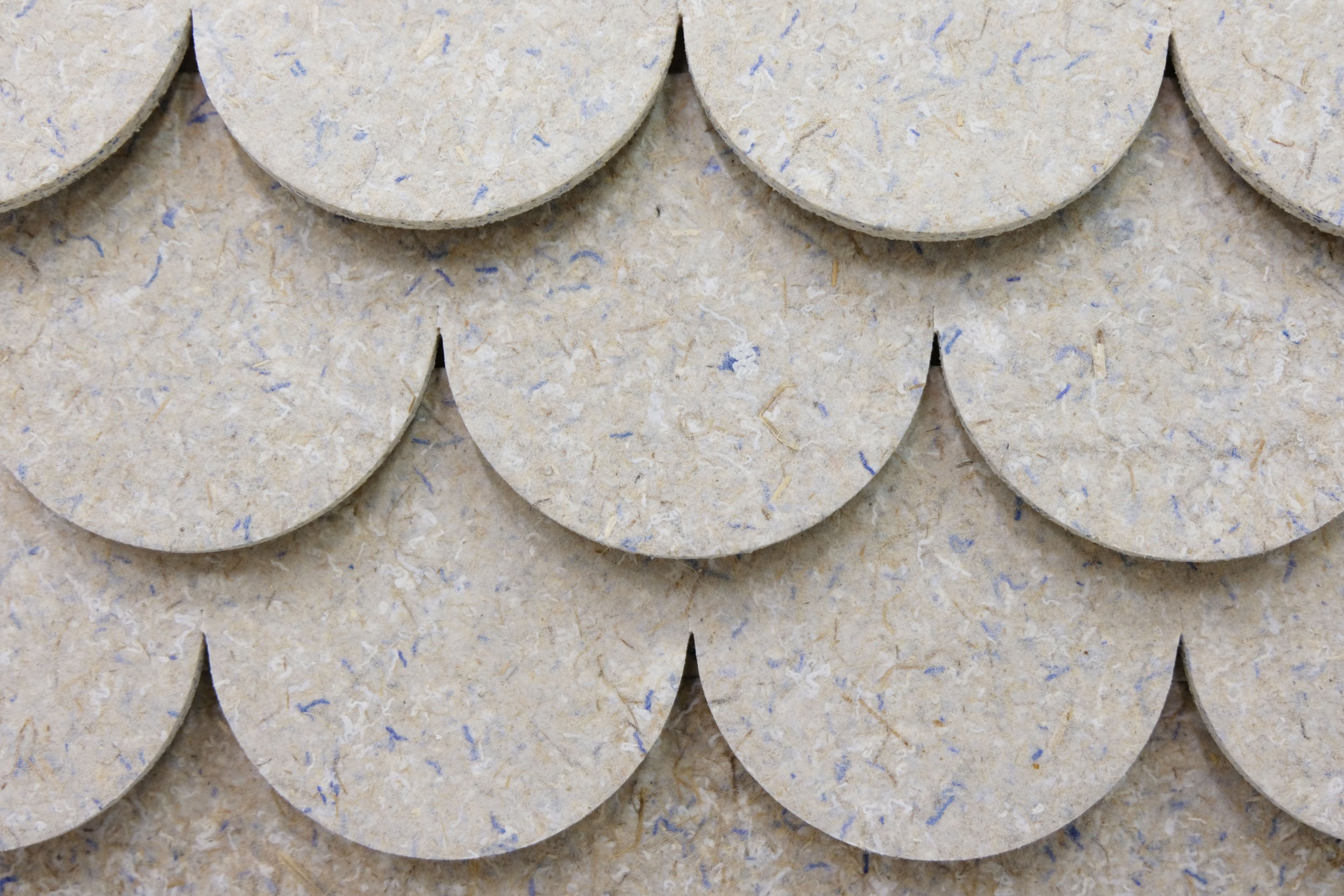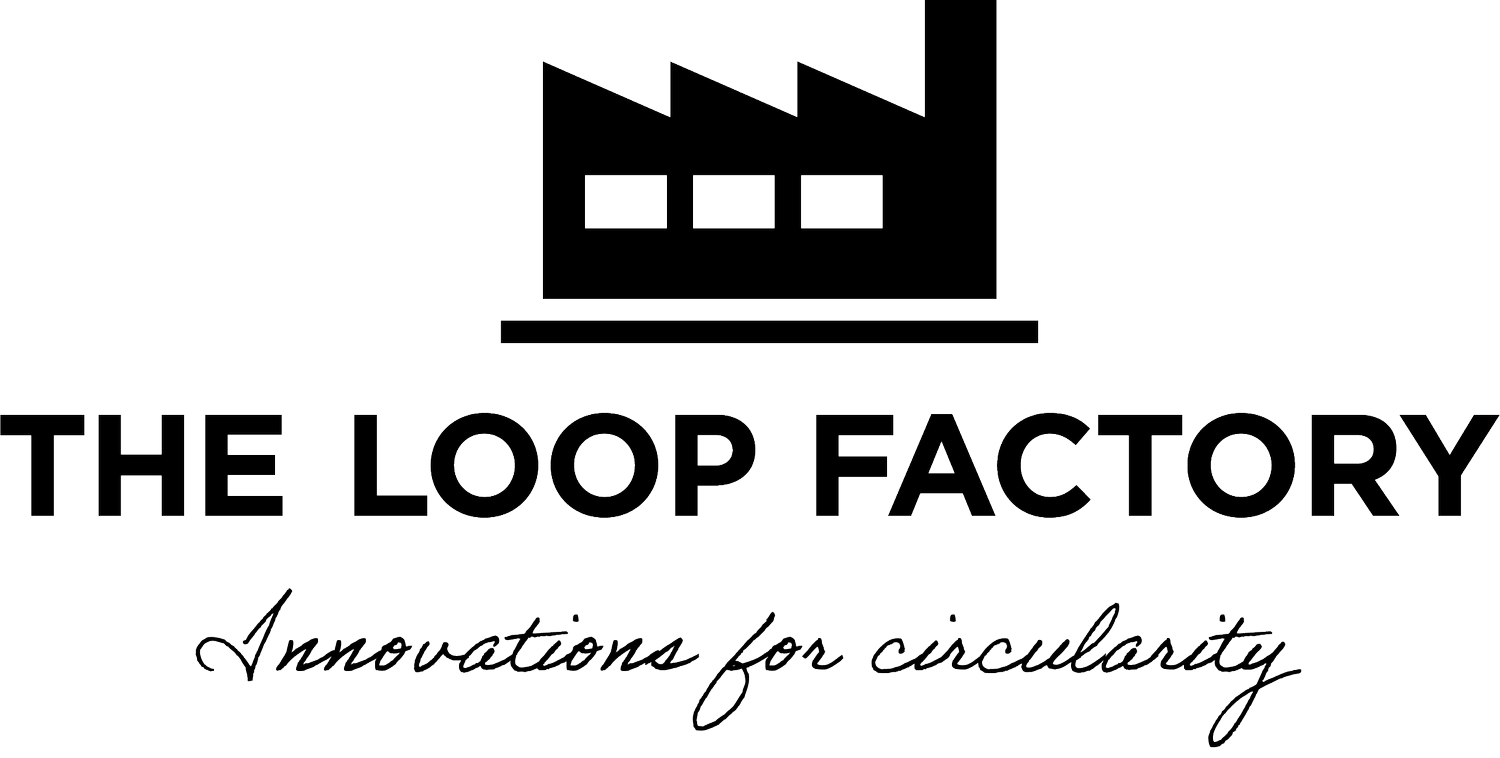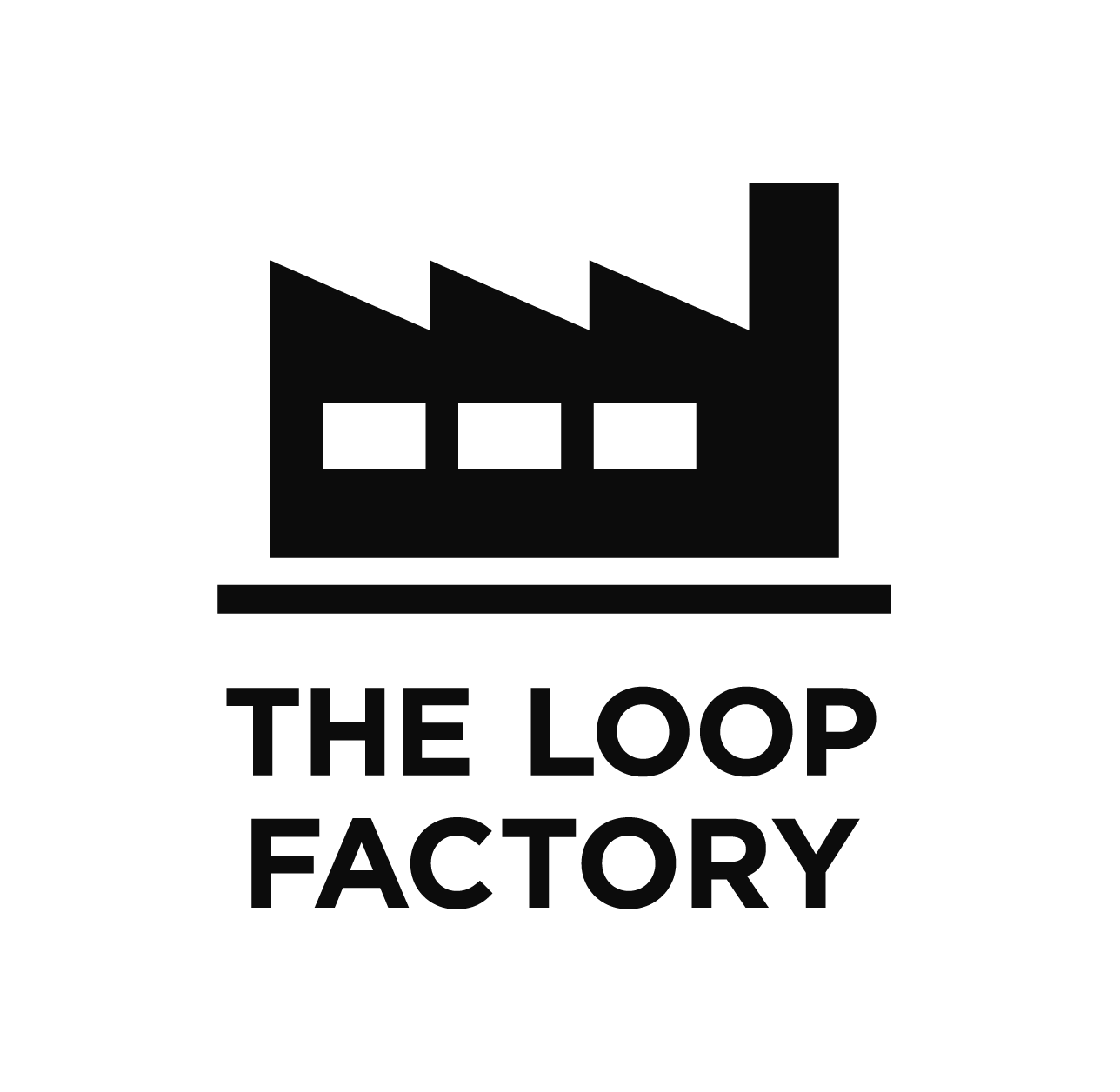
bio-based & innovative sound absorbEnts
Future materials. Developing early stage material concept for sound absorbents made of textile waste and hemp fibers. The purpose was to explore the opportunities to use residual waste materials and biomaterials as a resource. The aim was also to open up completely new value streams for materials by cross-sectoral thinking. By mixing materials, it would also be possible to upgrade all constituent raw materials to a high-quality end product with great flexibility in material properties.
BACKGROUND
The goal of the project was to develop a bio-based sound absorbent approved for installation in ceilings which could replace today's mineral-based materials. This required that the product had an approved and environmentally friendly flame protection, which would be developed in the project. The intention was also to demonstrate prototypes in a real application environment.
CHALLENGE
A major challenge in the project was the fire classification of organic materials. Textile-based absorbents often have poor fire protection, as did the project's demonstrator. As a next step towards a product launch, it would be necessary to review the level of fire classification or significantly improve the fire protection.
SOLUTION
The sound absorbent was based on hemp, recycled textiles, binders and fire protection and was to be installed in the ceiling in the same way as fiberglass-based tiles. The Loop Factory’s role was to produce a demo for the parties in the project. The demo was designed by Pontus Törnqvist.
RESULT
The method of air formation of short fibers was refined during the project and opened up new opportunities for the development of products based on a similar fiber mat. Recycling of textiles from the healthcare sector generated a number of follow-up projects and the interest remains great as this constitutes one of the more homogeneous and predictable material flows of used textiles.
the facts
The project was funded by Bioinnovation.
A collaboration project with RISE IVF, Ecophon, OrganoClick, Hampaprodukter, Region Västra Götaland, Tvätteri Alingsås and The Loop Factory.


